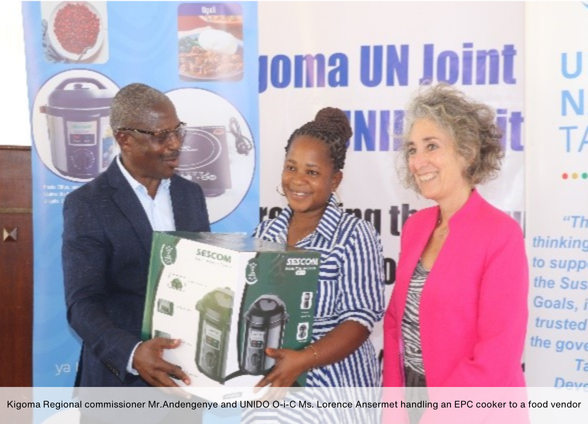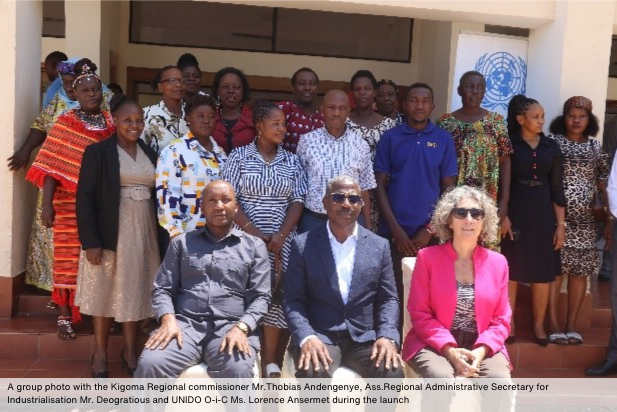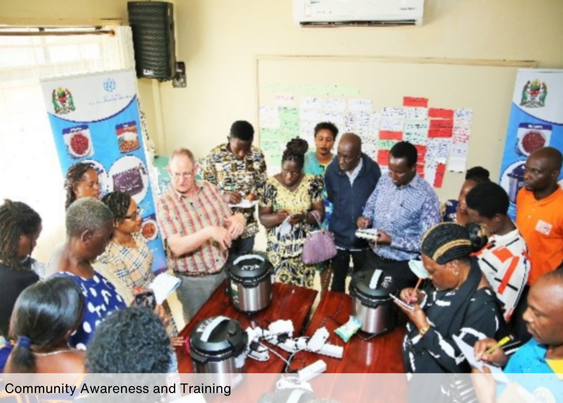Launching of efficient electric cooking in Kigoma region – UN KIGOMA JOINT PROGRAM II
Kigoma, located along the shores of Lake Tanganyika in western Tanzania, is embracing a significant shift in its cooking methods, driven by the UN Kigoma Joint Programme (KJP) II. Led by the United Nations Industrial Development Organization (UNIDO), the initiative introduces energy-efficient electric cooking to households, promising both environmental and economic benefits.

For many households in Kigoma, cooking has long relied on charcoal and firewood—fuels that contribute to deforestation and indoor air pollution. UNIDO’s initiative aims to change this by introducing affordable, efficient electric cooking appliances. This shift aligns with UNIDO’s global mission to support sustainable development, particularly in achieving Sustainable Development Goal 7: access to affordable, reliable, and clean energy.
Kigoma was chosen as a starting point for this initiative due to its unique challenges. Limited access to clean energy and a heavy reliance on biomass have led to both environmental degradation and serious health concerns, such as respiratory illnesses caused by indoor smoke. With the national electricity grid expected to expand into the region by November 2024, Kigoma presents a timely opportunity for introducing electric cooking solutions.
The electric cooking project in Kigoma is multi-faceted, focusing on:
- Affordable Appliances: UNIDO has partnered with local distributors to provide energy-efficient electric stoves, made accessible to low-income households through microcredit schemes.
- Community Education: Training sessions are being held to raise awareness about the benefits of electric cooking and ensure proper use and maintenance of the appliances.
- Environmental and Health Benefits: By reducing the need for firewood and charcoal, the initiative will cut carbon emissions, improve air quality, and reduce respiratory illnesses.
- Job Creation: The program is creating new employment opportunities for appliance distributors and technicians.

Though it has launched in Kigoma, the initiative plans to expand to neighboring areas like Kakonko and Kibondo. UNIDO envisions creating a sustainable model that can be replicated across Tanzania, accelerating the shift from traditional biomass to cleaner, more efficient electric cooking.
In conclusion, the electric cooking initiative marks a crucial step in Kigoma’s journey towards a cleaner, healthier future. Through the KJP II, UNIDO is empowering communities with access to modern, sustainable energy solutions, setting an example for the rest of Tanzania.



